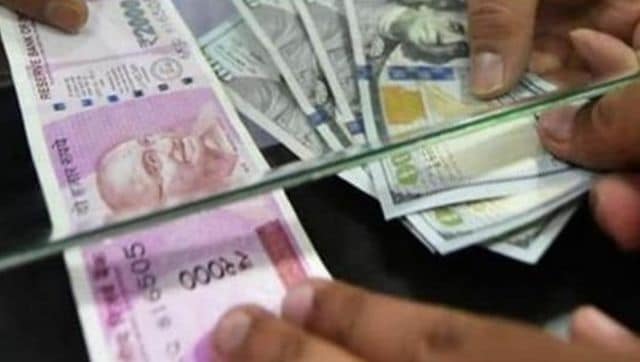Rupee closer to replacing dollar as 18 nations agree to trade in INR
Posted on March 15th, 2023
Courtesy First Post
The process of SRVAs started last year in the month of July when the RBI issued detailed guidelines on cross-border trade transactions in the Indian rupees (INR)

Several nations express interest to facilitate international trade in Indian rupee. Representational Image/PTI.
New Delhi: Indian rupee is edging closer to becoming an international currency with more and more countries working to de-dollarise global trade. Several nations have expressed interest in facilitating international trade in INR and to make the process smooth, India’s central bank – RBI- has given approval for opening 60 special rupee vostro accounts in 18 countries including Russia and Sri Lanka.
India’s Minister of State for Finance Bhagwat Karad informed parliament that as per records, India’s central bank – Reserve Bank of India (RBI) – had granted approval to domestic and foreign AD (Authorised Dealer) banks in 60 cases for opening SRVAs of banks from 18 nations” for settling payments in Indian rupees.
The minister further said, out of the 18 countries, Russia has been vocal in facilitating trade in local currency for the overall process of de-dollarisation”. He went on to say that India, however, has been supporting the idea of trade in local currency majorly to boost exports.
18 countries allowed to trade in Indian rupees
The 18 countries that have been allowed to trade in Indian rupees are:
1 – Russia
2 – Singapore
3 – Sri Lanka
4 – Botswana
5 – Fiji
6 – Germany
7 – Guyana
8 – Israel
9 – Kenya
10 – Malaysia
11 – Mauritius
12 – Myanmar
13 – New Zealand
14 – Oman
15 – Seychelles
16 – Tanzania
17 – Uganda
18 – United Kingdom.
The numbers clearly indicate a significant progress in the development of mechanism to settle international trade in Indian rupees.
What is Special Rupee Vostro Account or SRVA?
The process of SRVAs started last year in the month of July when the RBI issued detailed guidelines on cross-border trade transactions in the Indian rupees (INR).
It has been decided to put in place an additional arrangement for invoicing, payment, and settlement of exports/imports in INR,” the India’s central bank said.
Also Read: Eight countries open 50 special rupee vostro accounts in 6 months to trade in INR
To settle trade as per the new mechanism, authorised banks in India need to open and maintain SRVAs of the partner trading country’s banks.
These accounts keep the foreign entity’s holding in the Indian bank in INR. When an Indian importer make a payment to a foreign trader in rupees, the amount gets credited to this vostro account.
Similarly, when an Indian exporter has to be paid for goods and services in rupees, amount from this vostro account will be deducted and credited to the exporter’s regular account.
The SRVAs holders are allowed to invest surplus balance in Indian government securities. This facility is being provided by the RBI to help popularise the new arrangement.
Don’t Miss: Indian rupee could be the new dollar, says ‘Doctor Doom’ Nouriel Roubini
Indian importers undertaking imports through this mechanism shall make payment in INR (Indian Rupee), which shall be credited into the special vostro account of the correspondent bank of the partner country, against the invoices for the supply of goods or services from the overseas seller/supplier,” the Indian central bank had said.
India has been trying to promote the use of INR for trade settlement with other countries after the West and European nations imposed sanctions following the launch special military operation” by Russian President Vladimir Putin against Ukraine on 24 February, 2022.
Leading banks of Russia – Sberbank, VTB Bank and Gazprombank – were among the first to be granted approval by the RBI for SRVAs.